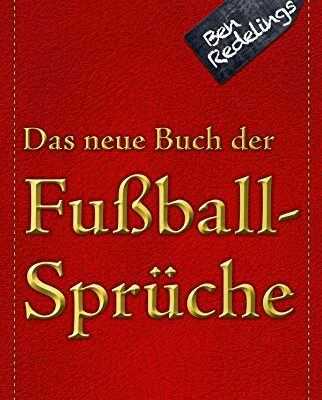A draw in Albania in the qualification suddenly put an end to all hopes for a first European Championship participation. But the European Championship in 1968 was a spectacle: a scandalous game in Vienna, a coin toss in the semifinals and a disaster referee that the Germans knew from Wembley in 1966.
“1. FC Nürnberg or Eintracht Braunschweig can travel there without anything happening”, the reigning club coach Max Merkel had previously pointed out – but then on December 17, 1967, the football sky collapsed over the DFB-Elf. An embarrassment of historical proportions – because the national team, as runner-up world champions, actually failed prematurely in qualifying for the 1968 European Championship in Italy because of one of the greatest underdogs in European football at the time. The shame of Tirana against the Elf from Albania went down in history – and suddenly destroyed the dream of participating in a European Championship for the first time.
A victory, no matter how, with how many goals scored, would have been enough for the DFB team around midfield team Günter Netzer and Wolfgang Overath, but the team that had to get by without the Bayern axis Maier, Beckenbauer, Müller found this one Tag just no remedy against the Albanian team. Borussia Mönchengladbach’s striker Peter Meyer, who replaced the “bomber” Gerd Müller, was astonished afterwards: “I had no idea that the completely unknown Albanians could play so cleverly.”
You couldn’t deny the DFB-Elf the honest effort to somehow rock the thing home, but especially the creativity department around the two midfield geniuses failed – and made sure that in later years the combination Netzer and Overath only in the stand together on the pitch in an absolute emergency. Goalkeeper Manfred “Cassius” Manglitz – never at a loss for a loud mouth – poured additional fuel into the fire after the national team’s premature retirement when he said: “Nuremberg would have scored at least four goals here.” A steep template for the local tabloid press, which immediately brought the club’s upcoming master coach into position: “Let Merkel take over!”
“The Russians had nerves like wire ropes”
But since it was the first time ever that the team from the FRG tried to participate in the European Championship – which was now officially called that – the mood calmed down over the Christmas days – and national coach Helmut Schön remained in office. However, from now on, the DFB issued the route that the title of European champion was definitely worth striving for. A disgrace like this 0-0 win in Tirana should never be repeated. Because meanwhile all of Europe looked very interested every four years at the EM in the summer.
And rightly so. Because the first official European championship also delivered a lot of stories and anecdotes. Not all were positive, however. The encounter between Austria and Greece on November 5, 1967, for example, has long been considered one of the greatest scandals in European football history. The game had to be stopped when the score was 1: 1, because the 60,000 spectators in the Vienna Prater Stadium completely lost control due to the rough game and a completely overwhelmed referee team and there were wild fights and considerable damage to property.
In the semifinals, hosts Italy and the EM semi-finalist USSR met in Naples. The “Süddeutsche Zeitung” noted the next day: “The audience tried to shout at the opponent with Neapolitan temperament, whatever he was doing. They shouted their throats hoarse in vain. The Russians had nerves like wire ropes.” And they actually held 0-0 until the end of extra time. Since there was no penalty shoot-out back then, the lot or a coin toss had to be decided. On that day, the execution was the responsibility of the German referee Kurt Tschenscher, who carried out the throw in a closed room in the catacombs. “You didn’t choose heads or tails, but ball or goal,” said the referee many years later. When the door was unlocked again, the two crew captains were standing in front of it. Tschenscher informed them of the result, whereupon the Italian player immediately raced off and informed his comrades that they were in the final.
“His performance was an insult”
Ben Redelings is a passionate “chronicler of football madness” and a supporter of the glorious VfL Bochum. The bestselling author and comedian lives in the Ruhr area and maintains his legendary treasure trove of anecdotes. For ntv.de he writes down the most exciting and funniest stories on Tuesdays and Saturdays. More information about Ben Redelings, his current dates and his book with the best columns (“Between Puff and Barcelona”) can be found on his website www.scudetto.de.
This final was also tough – in the end there were two games that Italy had to play against the strong Yugoslavs. And only because they had a loyal ally in the Swiss scandal referee of the famous Wembley final in 1966, Gottfried Dienst. The German TV commentator Rudi Michel stated after the sensational non-performance of the Swiss: “When on duty, not even the will to objectivity was discernible.” And the Swiss newspaper “Tribune de Lausanne” did not give their compatriot good hair either: “His performance was an insult. He faked the final!”
But together with Gottfried Dienst, the Italians managed with great difficulty to wrest a 1-1 draw from the Yugoslavs in the first final. The Italian goalkeeper legend Dino Zoff said very fairly afterwards: “To be honest, we didn’t deserve the draw.” But in the end that didn’t count anymore. Because Italy is in the history books of football as the winner of the European Championship tournament of 1968. The 2-0 in the replay ultimately secured the title for the team around captain Facchetti and made the local press jubilate: “Football Europe is ours!” That was true. Definitely for the next four years – because in 1972 the DFB team should also seriously try to win the European Championship crown for the first time.
.

